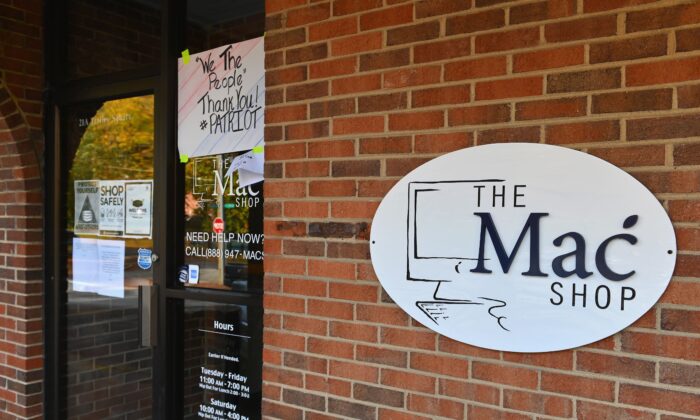Prosecutors allege that Mr. Biden was in the grips of crack cocaine addiction when he bought the gun, pointing to potentially self-incriminating statements.
WILMINGTON, Del.—There was no evidence of any tampering with the laptop that Hunter Biden dropped off and never picked up from a Delaware computer shop in 2019, according to June 5 testimony from an FBI special agent during the First Son’s federal gun trial.
Prosecutors called Special Agent Erika Jensen, who was assigned to Mr. Biden’s case, to testify on June 4 and June 5. The attorneys asked Ms. Jensen if she could rule out if Mr. Biden’s laptop was tampered with before or after it was given to the repairman. The agent said there was no evidence of tampering.
Mr. Biden is facing three felony charges from the Oct. 12, 2018, firearm purchase. Authorities accuse him of lying to the federally licensed gun store by illegally claiming on his application that he was not a drug user at the time and then unlawfully possessing the gun for 11 days.
They say statements from Mr. Biden’s memoir and various text messages refute his claims that he was not a drug addict when he purchased the gun.
The First Son’s attorneys argue that he was in “denial” of his addiction when he filled out the form and thus could not have lied when he checked “no” under the question about being a drug addict.
The defense has also suggested Mr. Biden was too functional when he purchased the gun to be in the grips of addiction at the time, but two of his ex-partners rebutted that allegation on June 5. Ex-wife Kathleen Buhle and ex-girlfriend Zoe Kestan both said Mr. Biden would often appear so high functioning while intoxicated on crack cocaine that others would fail to notice he had smoked the drug.
Out of all the evidence presented on June 4 and June 5, prosecutors pinpointed bank statements showing hundreds of thousands of dollars in cash withdrawals in 2018 alone. Mr. Biden’s attorneys claimed the money was for liquor purchases, rent for Airbnb, and payments made to rehab and sobriety services.
However, prosecutors allege the receipts for those purchases show they were made with Visa cards, not cash.
Prosecutors asked Ms. Jensen if she had seen any evidence that Mr. Biden was “taking wads of cash and putting them into envelopes to mail to Airbnb.” The agent replied that she had not.
Prosecutors also allege that Mr. Biden sent his brother’s widow, Hallie Biden, a text on Oct. 13, 2018, the day after the gun sale, that he was “waiting for a dealer named Mookie.” The next day, he allegedly sent another text message saying he was “sleeping in a car, smoking crack.”
He was romantically involved with Ms. Biden during the time of the gun sale, and she was the person who found the gun in Mr. Biden’s car and threw it away out of concern for his mental health.
Mr. Biden’s attorneys have tried to argue that while he was addicted to crack before and after the gun purchase, he was not an addict at the time of the sale.
Prosecutors contend that this is unlikely, pointing to statements in Mr. Biden’s memoir, messages he sent from his phone, and testimony from his ex-partners who suggest he was likely still a drug addict in October 2018.
While some of the phone messages were written in code, such as one that asked an associate for “baby powder,” prosecutors claim many of the texts are explicitly about drugs.
“Crack is crack,” the prosecution said.
Prosecutors plan to continue probing the gun store salesman on June 6 as the trial enters its fourth day.
Mr. Biden is facing up to 25 years in prison if he is convicted in the federal gun case, although first-time offenders typically receive less than the maximum sentence. It is also unclear if the judge will give him prison time.

